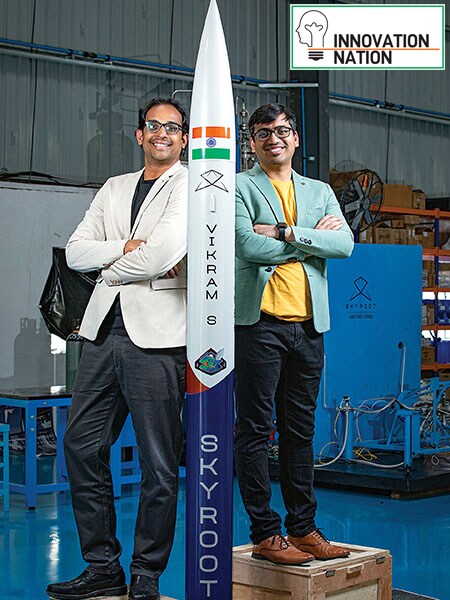
Skyroot Aerospace: Creating spacefaring history with Vikram-S
Skyroot Aerospace launched Vikram-S, India's first privately built space rocket in November 2022. Founders Pawan Kumar Chandana and Naga Bharath Daka now hold the aspiration of one launch a day
 Naga Bharath Daka (left) and Pawan Kumar Chandana, co-founders, Skyroot Aerospace
Image: Chennoju Kranthi for Forbes India
Naga Bharath Daka (left) and Pawan Kumar Chandana, co-founders, Skyroot Aerospace
Image: Chennoju Kranthi for Forbes India
Pawan Kumar Chandana and Naga Bharath Daka made a bit of Indian spacefaring history with the launch of Vikram-S, the first privately built space rocket from the country, in November.
The two former Isro engineers started Skyroot Aerospace in 2018, anticipating that the market for low-Earth orbit satellites will explode, requiring a large number of launches, worldwide.
Vikram-S was named after Vikram Sarabhai, widely seen as the father of India’s space efforts and its motor Kalam-80 honours another doyen of India’s rockets technologies, and former president, the late APJ Abul Kalam.
On November 18, the 6-metre-tall all-composite rocket, weighing 545 kg, reached an altitude of 89.5 km, crossing five times the speed of sound before it splashed back into the oceans in the Bay of Bengal after a few minutes. It’s capable of taking a payload of 83 kg to 100 km above the Earth.









